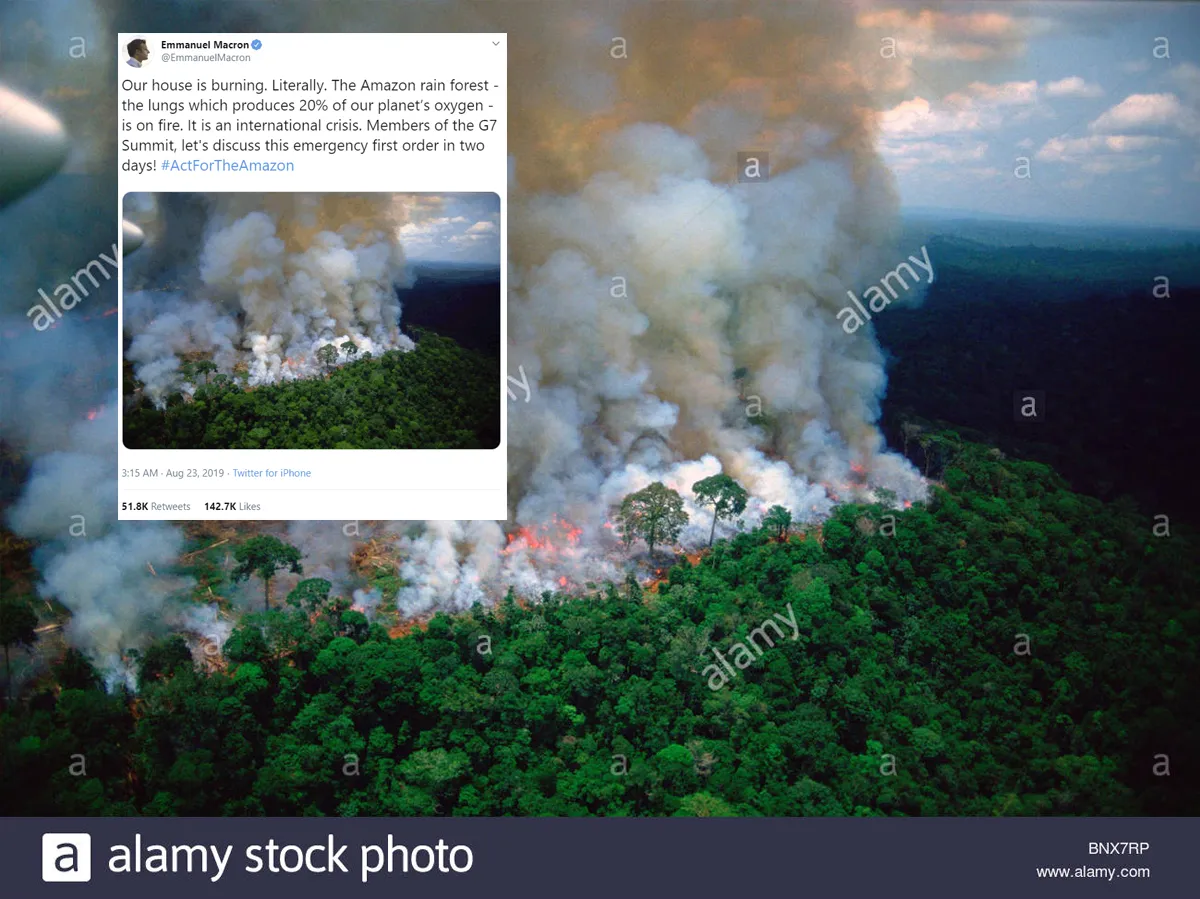Table of Contents
By now, everyone who isn’t a complete idiot or a blind eco-fanatic (is there a difference?) knows that the “Amazon is burning!” panic is a thoroughgoing lie. Not that you can rely on the so-called “fact-checkers” of the left-wing media to come clean about that.
But the truth really is inconvenient to the green-left. If everyone acknowledged the truth about the global environment (it’s not perfect, but it’s doing pretty well, and way better than it used to be), the donations would stop rolling in and the left would be shorn of much of their power.
I sometimes wonder if the line wrongly attributed to Mark Twain, ‘a lie is halfway round the world before the truth has got its boots on’, is now taken as an instruction by environmental pressure groups. They operate in a viciously competitive market for media attention and donations, and those who scream loudest do best, even if it later turns out they were telling fibs.
As Michael Crichton’s State of Fear argues, the media and the green-left (again – is there a difference?) have a vested interest in creating spurious panics, in defiance of plain fact.
Around the world, wild fires are generally declining, according to Nasa. Deforestation, too, is happening less and less.
Or even reversing.
A study in Nature last year by scientists from the University of Maryland concluded that […] ‘contrary to the prevailing view that forest area has declined globally — tree cover has increased by 2.24 million km2 (+7.1 per cent relative to the 1982 level).’
[…]Possibly the biggest driver of this encouraging trend is the rising productivity of agriculture. The more yields increase, the less land we need to steal from nature to feed ourselves. Jesse Ausubel of Rockefeller University has calculated that the world needs only 35 per cent as much land to produce a given quantity of food as 50 years ago. That has spared wild land on a massive scale.
Environmentalists’ lies have real consequences, beyond lining the pockets of quangos and shoring up political careers. Some years ago, I interviewed the CEO of a company proposing to operate a big, scary “super-trawler” in Tasmanian waters. He was adamant that they had bent over backwards to deal with environmental issues, and that all had been going swimmingly – until a global e-ngo stepped in. The proposal was scrapped. Yet, now fish stocks such as flathead are threatened in Tasmanian waters – but from recreational, not commercial fishing. The very people who were hoodwinked by environmentalists into fiercely campaigning against the trawler are themselves responsible for largely uncontrolled over-fishing.
It may seem paradoxical, but often the commercial exploitation of a resource is the very thing that preserves it – and contributes the most to human well-being.
Likewise, getting people on to fossil fuels and away from burning wood for fuel spares trees. It is in the poorest countries, mainly in Africa, that men and women still gather firewood for cooking and bushmeat for food, instead of using electricity or gas and farmed meat.
Environmentalism is adamantly opposed to it all. Forests that were being replenished are being cut down again, as fossil fuels are replaced with “biofuels” (a fancy euphemism for “burning plants”).
The obsession with climate change has slowed the decline of deforestation. An estimated 700,000 hectares of forest has been felled in South-East Asia to grow palm oil to add to supposedly green ‘bio-diesel’ fuel in Europe, while the world is feeding 5 per cent of its grain crop to motor cars rather than people, which means 5 per cent of cultivated land that could be released for forest. Britain imports timber from wild forests in the Americas to burn for electricity at Drax in North Yorkshire, depriving beetles and woodpeckers of their lunch.
There is a human cost, too: poor farmers and herdsmen in Africa and South America are being driven off their lands, often violently, to make way for biofuel plantations.
The temptation to moralise on social media is so strong among footballers, actors and politicians alike that it is actually doing harm. Get the economic incentives right and the world will save its forests. Preach and preen and prevaricate, and you’ll probably end up inadvertently depriving more toucans and tapirs of their rainforest habitat.
spectator.co.uk/2019/08/the-most-dangerous-thing-about-the-amazon-fires-is-the-apocalyptic-rhetoric









